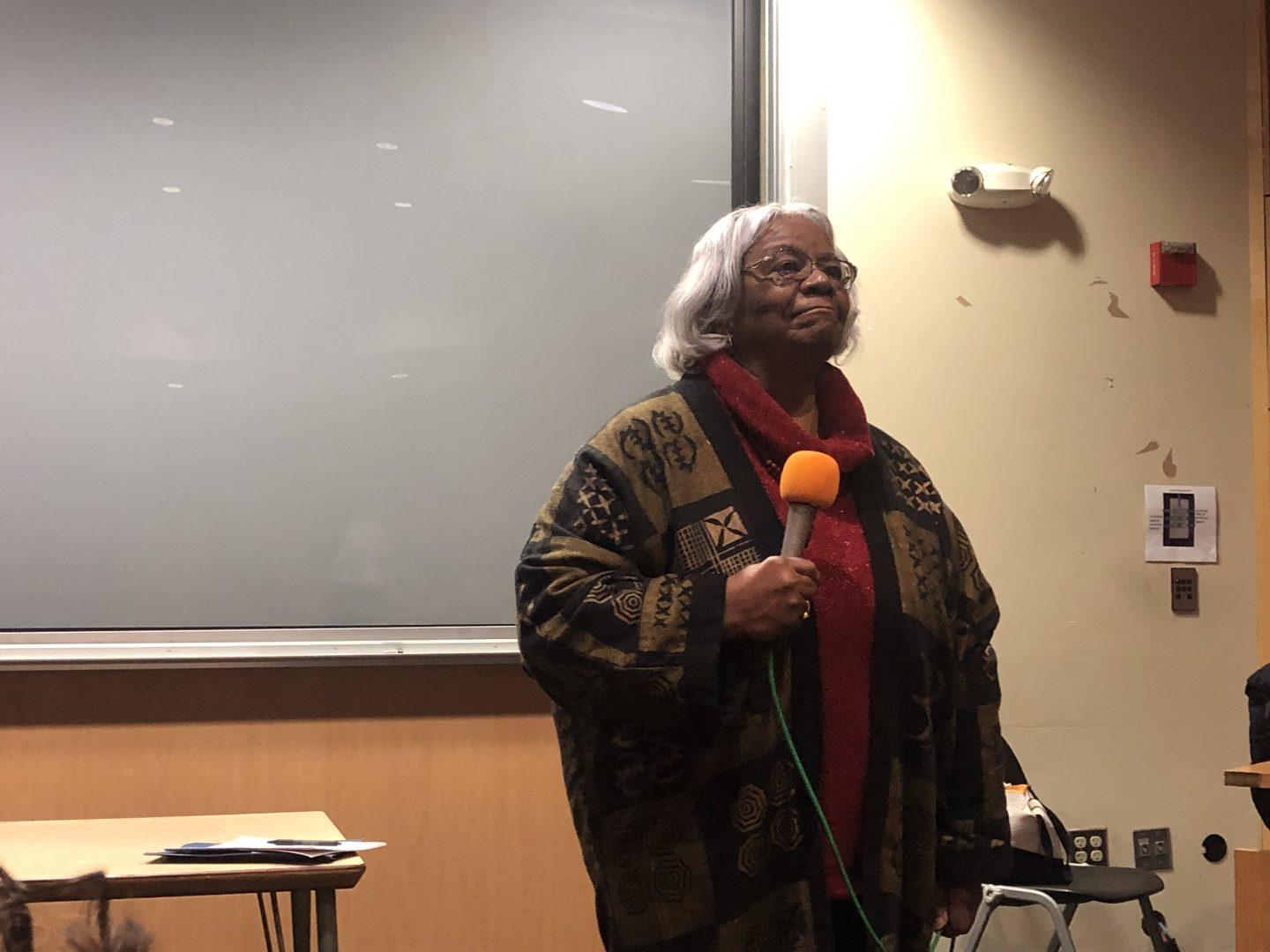Lorraine Hansberry was the first African American female to have a play performed on Broadway.
What not everyone in the audience at the Peters Education Center Auditorium knew is that Hansberry was a revolutionary activist.
CineCulture showed “Lorraine Hansberry: Sighted Eyes/Feeling Heart” on Feb. 22 to a diverse audience that included Fresno State and senior citizens.
“I was born black and a female,” Hansberry said in the film.
Hansberry was a journalist, playwright and writer from the south side of Chicago. Hansberry wrote “A Raisin in the Sun,” the first African American play to be performed on Broadway. With this play, Hansberry showcased the real struggles that black people in Chicago had to undergo.
In “Lorraine Hansberry: Sighted Eyes/Feeling Heart,” the audience witnessed how “ahead of her time” Hansberry was by writing on women’s rights, gay rights and equality during a time where America was segregated, said Dr. Margaret Wilkerson, senior adviser of the film.
Wilkerson is the author of the forthcoming book, “Lorraine Hansberry: Am I a Revolutionary?” which will be the first biography on Hansberry.
A retired professor with a Ph.D. in Dramatic Art from the University of California, Berkeley, Wilkerson was interested in researching Hansberry and her work. During a conference, Wilkerson met Hansberry’s ex-husband, Robert Nemiroff, who had listened to Wilkerson speak on a panel. Nemiroff asked Wilkerson to write Hansberry’s biography.
“I had no idea what I was getting into,” Wilkerson said.
Nemiroff offered Wilkerson unrestricted access to Hansberry’s work, which was “too good of an opportunity to pass out,” Wilkerson said.
Wilkerson was a high school teacher in the Watts section of Los Angeles during the 1960s when she had the opportunity to travel to New York and see “A Raisin in The Sun” with the original cast and production.
“I hadn’t seen anything like it,” Wilkerson said. “I knew something really marvelous had happened.”
Hansberry wanted to create stories where black people weren’t represented as the servient, ignorant, loud and/or aggressive people that Hollywood movies of the time showed.
She wanted to represent the hard-working people of Chicago who were in the midst of the Civil Rights Movement.
Hansberry also wrote numerous lesbian stories under a pseudonym and made sure that the public didn’t know she was a lesbian. When she was alive, Hansberry’s ideas of equality and diversity put her on the FBI’s watch list under the name of “communist.” This didn’t stop Hansberry from speaking her people’s truth.
“She was so committed to what the world needed,” said Wilkerson, who closely studied Hansberry’s works.
After the film, Wilkerson led a discussion by asking the feelings that the movie invoked in the audience. One of the audience members said, “I am so sad and so angry, and I don’t understand how we can do this to each other.”
Wilkerson engaged the audience in a conversation about how important it is for people to learn about history and have honest conversations about controversial issues that affect society every day.
“We have to be involved in what is going on. We have to talk about what is going on,” said Wilkerson.
Wilkerson strongly believes that is “important to understand and hear the voices of people like” Hansberry.
Marisa Ramirez, a math major, thought the film was necessary.
“There’s always certain stories that need to be shown,” Ramirez said.
Dr. Mary Husain, instructor and club adviser of CineCulture, said that the purpose of these films is to “understand through film and dialogue” the many issues that society goes through.
Students can watch “Lorraine Hansberry: Sighted Eyes/Feeling Heart” on Kanopy, the Henry Madden Library’s free streaming service.





